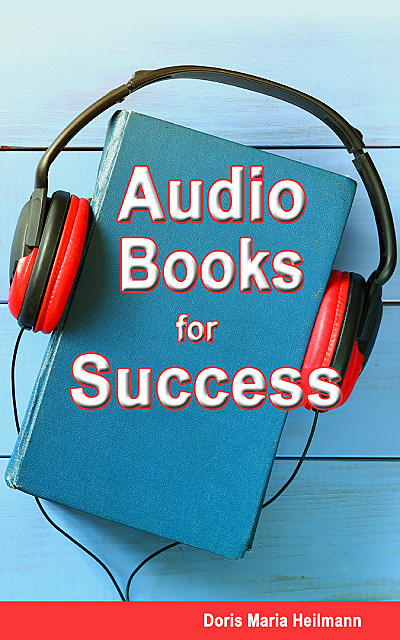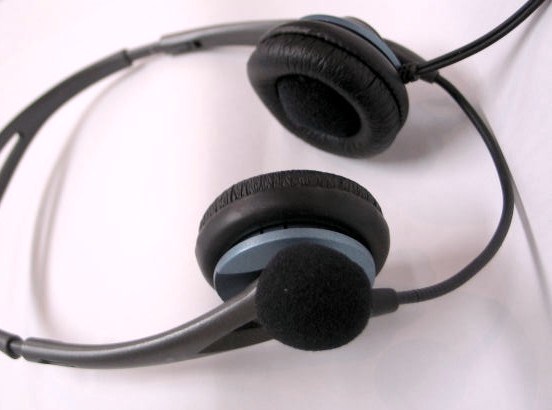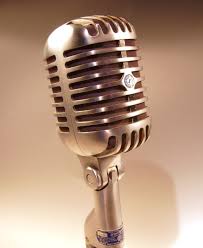AUDIOBOOKS FOR SUCCESS
.
How to Create, Publish, and Market Your Audiobooks
Discover every aspect of audiobooks with this comprehensive guide for audiobook publishers, narrators, voiceover artists, and audiobook listeners.
Get step-by-step instructions on how to plan, narrate, record, edit, master, proof, and sell your audiobook, plus countless tips on finding the best audiobooks and apps and writing an audiobook review.
Learn the following and more:
- Why investing in an audiobook is worthwhile
- How to choose an audiobook studio or production company in the USA, the UK, and Canada, and most important: to find the right narrator for your title
- How to set up your own DIY recording spot and which equipment to use for quality recording
- Where to take narration training and learn voiceover techniques or build a career out of your voice
- How to make words on a page come alive for the audience and create a visual image for the listener
- How to find reviewers (including direct links) and how to market and distribute your audiobook
- Where to find info about audiobook sellers and apps, and even where to find free audiobooks on the internet
- All about audiobook industry associations and their awardshttps://books.apple.com/us/book/id1475989056
https://www.amazon.com/dp/B07W81MN2Z
Print Edition & Electronic Book Edition 2019
Chapters:
Why Audiobooks?
Audiobooks Long History
How Popular Are Audiobooks?
Benefits for Authors
How to Plan Your Audiobook
How to Find the Right Narrator
US Audiobook Production Companies
Audiobook Studios in the UK
Canadian Audiobook Studios
Production Cost for Audiobooks
Audio Books with ACX – Pro’s and Con’s
DIY Narrating and Audiobook Production
How to Become an Audiobook Narrator
Equipment for Narrators
Audiobook Narration Training
How to Market Your Audiobook
Audiobook Reviewers
Audiobook Distribution
Selling Audiobooks From Your Own Website
Audiobook Library Distributors
Listening to Audiobooks
How to Find Free Audio Books
The Audiobook Industry
Links and Bibliography
Why Audiobooks?
Audiobooks allow you to be more productive by doing other things while you listen. Narrators make a story come alive and allow you to enjoy books in a whole new way.
Do you remember my blog “Split Your Book Apart”? What else could you do with your manuscript and your copyright?
One of the suggestions was audio. In other words: Re-purpose your manuscript and make more out of it than just the print version and an ebook. Why not additionally create an audiobook from your novel or even from non-fiction? Audiobooks are becoming more and more popular!
Audiobooks which let you multitask, are a great way to listen to books while driving long distance, walking the dog, or laying on the beach. And certainly, a wonderful way for blind people to easily enjoy books. Audiobooks can be listened to on an iPod or iPhone/SmartPhone or MP3 player, on your laptop, even on most e-readers such as Kindle and Nook. If you’ve never tried an audiobook, give it a go. You may be pleasantly surprised! Or maybe get addicted.
Bestseller Author Mike Wells sums up the benefits:
Taking a bath or sunbathing, when the light isn’t conducive to reading, you want to lay back and relax, or you simply don’t want to risk getting your book or eReader or tablet wet.
Experiencing a story in a group setting (with family or friends while on a road trip, for example).
Learning English (or the language in which the book is narrated) – hearing the tone and pronunciation of words can help learners become more natural speakers.
Increasing your “reading” time – in general, audiobooks allow you to consume new material at times you otherwise could not.
Your readers can listen to your audiobooks, which can easily double their book consumption because they are using the time that previously was not available and turning it into valuable “reading” time.
They can listen in the car, bus, train, plane – while exercising, walking or hiking, on the beach or while doing tasks around the house or yard.
Special needs readers, such as blind ones will have access to your written words in the form of an audiobook.
Audiobooks can be listened to on an iPod or iPhone/SmartPhone or other MP3 players, even on most e-readers such as Kindle and Nook.
A membership, for example, at Kobo Audiobooks, at Scribd or at Audible is a good deal for your readers. They can choose from various plans, and easily download digital audiobooks to their preferred device. Or they can go to their local public library to get audiobooks for free.
There are three ways of producing an audiobook:
You do it all yourself. If you are on a very tight budget you can make audios with some relatively inexpensive equipment.
You use a narrator who is specialized in audiobooks and who gets a percentage of revenue after production of your audiobook (for which they charge too).
You organize a professional production and keep all your revenue for yourself – which also means that you can sell your book everywhere you want: to online retailers, bookstores, libraries and on your own website.
Audiobooks Long History
Alison Thoet wrote for PBS: “More than 67 million Americans now listen to audiobooks annually, according to the Audio Publisher’s Association.”
“Audiobooks first emerged in 1932 with the establishment of a recording studio by The American Foundation for the Blind, which created recordings of books on vinyl records. Each side held about 15 minutes of speech. The following year, Congress passed an amendment that allowed the Library of Congress to begin producing audiobooks.”
“In the Uk, on 7th November 1935, the RNIB delivered the first talking books to blind and partially sighted people. Their first recordings were Agatha Christie’s “The murder of Roger Ackroyd” and “Typhoon” by Joseph Conrad, and were recorded on LP records which were 25 minutes per side – most of the books would take up 10 or so discs each and would be played on a gramophone.”
“Initial recordings included William Shakespeare plays, The Constitution and the novel “As the Earth Turns” by Gladys Hasty Carroll. More recording companies slowly emerged, mostly to assist the blind. In 1955, the Listening Library became a major distributor for recorded books.”
“New technology spurred audiobook growth with cassette tapes in the 1960s and compact discs in the 1980s. Waldenbooks installed “audio centers” in their bookstores and the publishing houses Random House, Warner Publishing and Simon & Schuster opened audio publishing divisions.”
“Digital audiobooks were a significant new milestone as they allowed listeners freedom from physical media such as cassettes and CD-ROMs which required transportation through the mail, allowing instead instant download access from online libraries of unlimited size, and portability using comparatively small and lightweight devices. Audible.com was the first to establish a website, in 1998, from which digital audiobooks could be purchased.”
Audiobooks transitioned from vinyl to cassette, to CD, to MP3 CD, and these days finally to digital download. In 2018, approximately 50,000 audiobooks were recorded in the United States with a sales growth so far of 20 percent or more – year over year.
How Popular Are Audio Books?
At the very least, the boom in audiobooks — sales of which increased tremendously in a time during which sales of hardback books slumped and e-books stagnated — shows a rare bit of good news for the publishing world. “It’s definitely the fastest-growing part of the publishing industry these days,” said Annie Coreno, review editor for Publishers Weekly.
Perhaps the biggest indicator of the format’s future growth may be the APA’s demographic data showing that audiobook listeners today are young, listening through multiple apps, on multiple devices, and are listening in new ways.
A study released by Rakuten OverDrive, the leading digital reading platform for libraries worldwide, reveals that technology has helped Americans find more opportunities to consume books. The shift towards digital content has allowed readers to continue to enjoy books anytime, anywhere on any device – even despite constant demands for attention from the outside world. The study found that over the past year, 34 percent of respondents have listened to audiobooks – and 87 percent of those respondents are consuming audiobooks while doing other activities.
Audiobooks are an immersive format that can be seamlessly integrated into everyday activities. The study also shows that millennials (ages 23-38) and adult members of Gen Z (ages 18-22) are driving the audiobook market with 48 percent selecting an audiobook while 24 percent of the Gen Xers and Baby Boomers utilize this digital technology to read.
Steve Potash, founder, and CEO of OverDrive said: “Within North American libraries alone, audiobook checkouts have more than doubled since 2013, growing at least 24 percent each year. Looking at this continuous growth, it’s apparent that technology hasn’t hindered a good story, only enhanced it. As more individuals are introduced to the power of audiobooks, we’ll continue to see digital reading grow in a variety of formats for years to come.”
University of Memphis professor Arthur Graesser, who studies learning and cognition points out: “We are more likely to stick with a book that we are listening to – than the one we are reading – which would also improve our chances of retaining what’s in it.”
Improving technology is also driving growth, especially the rise of smart speakers. In the last two years, the number of those listening to audiobooks through services like Google Home, or Amazon’s Alexa has been on the rise—and the survey shows that listeners are increasingly listening to audiobooks at home, to relax. Traditionally, audio has been more popular among multi-taskers and commuters.
Experience the Many Benefits of AudioBooks
Audiobooks which let you multitask, are a great way to listen to books while driving long distance, walking the dog, or laying on the beach. And certainly, a wonderful way for blind people to easily enjoy books. Audiobooks can be listened to on an iPod or iPhone/SmartPhone or MP3 player, even on most e-readers such as Kindle and Nook. If you’ve never tried an audiobook, give it a go. You may be pleasantly surprised! Or maybe get addicted.
Scott Sigler: “Listen during your workout and watch those treadmill miles fly by. Or for your commute, and you might find yourself looking forward to heavy traffic that will keep you in the car just a bit longer. Or, just for enjoyment.”
Audiobook sales are the fastest-growing sector of publishing by far. Audio companies have driven not only innovation but also spending, bidding aggressively on unsold rights (i.e., those not retained by print publishers). One big agent says that Audible paid twice as much for one of his client’s audio rights as a print publisher paid for the rest.
Bestseller Author Goes Audio Book
Bob Mayer, a very successful author of more than 50 books, explains: “Initially, as I learned how to use ACX, (Amazons Audio Book Company) I moved slowly, with only one other title going live that month. Since then, though, as I saw sales accelerate, I began putting multiple titles into production. Just recently, my 27th title went live.”
Benefits for Authors
Selling eBooks these days is virtually automated. At the very least, it’s become a great deal easier than it was even five years ago. Now it’s time to set our sights on a new frontier: Audiobooks
Why would you consider publishing audiobooks as an indie author? Are they worth the effort and costs involved?
Yes, if you create an audio version of your book, you can make CDs, stream it on your website, offer it as an MP3 download, or serialize it in podcast format. Here are more benefits:
More Credibility as a Self-Publisher
Anyone these days can create and publish an ebook, which is why Amazon is so saturated with self-published authors. But the same isn’t true for audiobooks. Only a small percentage of indie authors are choosing to capitalize on the audiobook route, and this can give you another advantage in a competitive marketplace: extra credibility.
A Less Saturated Market
Audiobooks are by not yet as popular as standard books or ebooks – which means less competition and your audiobook can be more easily discovered. With audiobooks, your books have a greater chance of being discovered, especially if you’re writing in a particular niche or sub-genre.
Increase Your Revenue
Similar to freelance writers who need a range of clients to balance out their income, authors do well to have diverse income streams. The cost of producing an audiobook (the cost of hiring a narrator) can seem a little high, but it really is a great investment in your future. The best thing about audiobooks is that the content is already available – it just has to be transformed into audio!
New Range of Readers
By expanding your reach into the audiobook market, you’ll be exposing your books to a whole new range of readers who might never have discovered you otherwise. Convenience and necessity aren’t the only reasons audiobooks are popular. Some people simply prefer the format overall, and love the experience of being ‘read to’. This hugely growing market is reason enough for indie authors to tap into the trend.
New Life to Your Book
Apart from adding some fresh ideas into your promotion and marketing strategy, what can you do to breathe new life into your existing book story? Connect with readers in a brand-new way – transform it into an audiobook, of course!
The conversion of a novel into audiobook works well, and if you want your book to become successful, it’s wise to offer your book in as many versions as possible
With the enormous increase of devoted audiobook listeners and press coverage about the audiobook industry, can you afford to not produce audiobooks of your titles?
Why Your Book Should Be in Audio Too
If you sell your publishing rights to a commercial publisher, hold onto your audiobook rights when negotiating traditional book deals. Separating rights allows authors to leverage the promotional might of a publisher for print/ebook while being able to negotiate better revenue rates for the audiobook.
Use Your Manuscript in Several Ways:
Re-purpose your manuscript and make more out of it than just paperback and an ebook. Why not additionally create an audiobook from your novel or even from your non-fiction? Audiobooks are becoming more and more popular!
Your readers can listen to your audiobooks, which can easily double their book consumption because they are using the time that previously was not available and turning it into valuable “reading” time.
They can listen in the car, bus, train, plane or while exercising, walking or hiking, on the beach or while doing mundane tasks around the house or yard. Special needs readers, such as the legally blind will have access to your written words in the form of an audiobook.
More libraries were lending ebooks and audiobooks last fall than the year before (76% vs 67% previously), and it won’t take long until all libraries will offer audiobooks to their patrons.
Which Genres Are Successful in Audiobook Form?
Individual results vary, but typically these book genres sell well:
Self-help/spirituality
History/biography
Mystery/thriller
Science fiction/fantasy
Health and fitness
Romance
Business
Visit my Author Page too:
https://www.books2read.com/ap/n4EYY8/Doris-Maria-Heilmann



